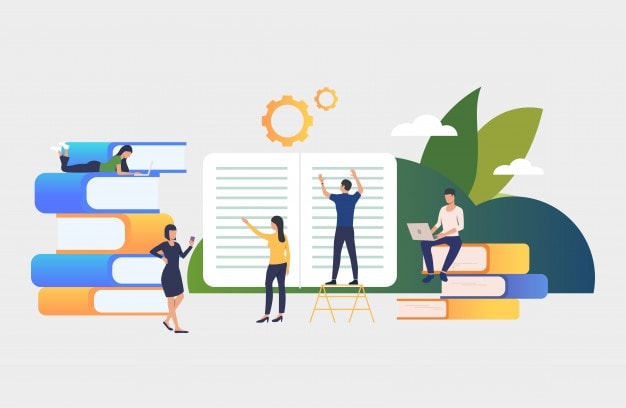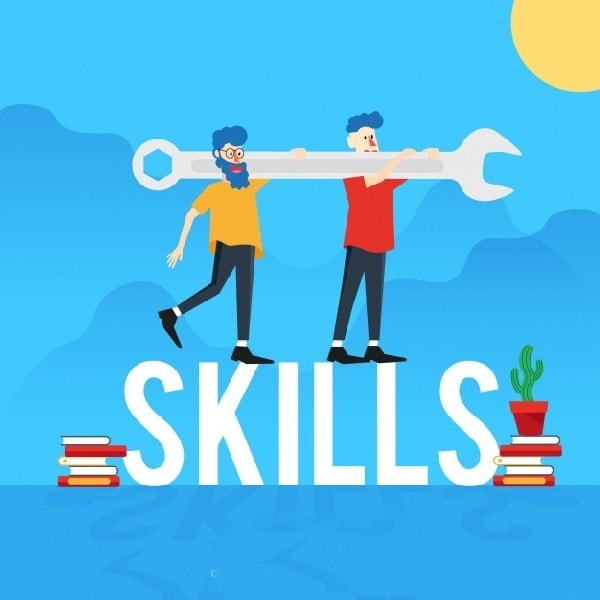
What Are Organizational Skills and How Can They Benefit You?

Organizational skill is the ability to use strategies that lead to efficient and effective completion of tasks It involves time management, decision-making, focus, self-motivation, physical and communication skills Improving these skills can lead to better productivity and success in personal and professional life
Organizational skill refers to the capacity to execute tasks efficiently and effectively through the use of systematic processes. This skill is not innate, but rather acquired and honed over time through deliberate practice and refinement.
Having strong organizational skills is highly valued by employers when considering potential hires. Those with exceptional organizational abilities are able to understand the broader scope of a project, which enables them to plan effectively, make strategic decisions, manage teams, prioritize tasks, and delegate responsibilities in a manner that leads to the successful accomplishment of company goals and objectives. Ultimately, this not only saves money, time, and effort, but also contributes to the overall success of the organization.
Effective organizational skills are crucial for successful multitasking. They enable individuals to avoid clutter and procrastination, establish structure and order, and handle unforeseen delays and issues with ease. In the business world, possessing strong organizational skills is essential for ensuring smooth operations and effective problem-solving.
When applying for jobs, it is important to highlight your organizational skills in your cover letter, resume, and during interviews. Hiring managers are constantly seeking candidates who possess the ability to make a positive impact on their organization, and strong organizational skills are a highly valued attribute.
Definition of Organizational Skill
Effective organizational skills can be categorized into two types:
Internal organizational skills refer to the ability to remain composed in challenging situations, and to have a well-structured schedule and plan for any scenario. This includes maintaining a clean and organized workspace, which promotes a seamless flow of business operations.
External organizational skills are crucial in any workplace as they help employees stay on track and maintain a healthy work-life balance. Meeting deadlines and timelines is essential, and breaking down large projects into smaller tasks is a must. A good organizational skillset enables employees to create a proper schedule, prioritize tasks, and delegate them to the right people, making their work schedule manageable. These external organizational skills are highly valued by employers and are an essential factor in achieving successful results.
Organizational skills offer a multitude of benefits, with the most significant being the ability to free oneself from the chaos that often surrounds daily life. By possessing the necessary skills to sort through clutter and keep everything in order, individuals can experience a newfound sense of control and peace.
Having strong organizational skills enables individuals to stay on top of their tasks and responsibilities, allowing them to maintain focus on achieving their goals. This clarity of mind can also lead to better decision making, as there is less clutter to sift through and distractions to contend with.
.
Furthermore, having a well-organized inventory and office supply system can also help in preventing losses and reducing waste. When everything is properly accounted for and stored in its designated place, there is less likelihood of items getting lost or damaged. This can save the business money in the long run and help maintain a positive bottom line.
Having strong organizational skills enables individuals to effectively prioritize their workload, leading to improved time management and increased productivity. In addition to this, maintaining an organized and clutter-free workspace can promote a sense of calm and collectedness, ultimately reducing stress levels within an organization.
Improved organizational skills can have a significant impact on an individual's personal life and overall work-life balance. By effectively setting and achieving goals, individuals can experience a sense of accomplishment that leads to increased happiness, job satisfaction, and engagement.
in problem-solving and decision-making. Moreover, it also helps in effectively managing time and resources, resulting in increased productivity and efficiency.
With strong organizational skills, an employee can prioritize tasks and meet deadlines, which ultimately reflects positively on the organization's performance. Further, it also helps in streamlining communication and collaboration within the team, fostering a positive work environment.
Therefore, possessing excellent organizational skills is a valuable asset in today's dynamic workplace, giving employees a competitive edge and contributing to the overall success of the organization.
Effective organizational skills lead to a clearer thought process, which in turn boosts employee enthusiasm towards their work. Furthermore, these skills ensure that essential data and information are readily available to employees while also safeguarding sensitive information from potential leaks.
Meaning of Organizational Skill
The various organizational skills are
1. Time management skills
and prioritization, creating a schedule, delegating tasks, avoiding distractions, and being adaptable to changes in the schedule. By mastering these skills, an individual can increase productivity, reduce stress, and achieve a better work-life balance. Therefore, it is important for individuals to learn and practice time management skills to be successful in both their personal and professional lives.
Prioritization
Scheduling
Delegating skills
2. Decision-making skills
and effective decision-making are indispensable for any organization to achieve its goals and objectives. In today's fast-paced business environment, companies cannot afford to delay their decision-making process as it can have severe consequences on their performance and bottom line. Therefore, having strong decision-making abilities is a must-have skill for any employee to succeed in their role and contribute to the success of the organization. Poor decision-making can lead to missed opportunities, wasted resources, and even reputational damage. Hence, it is crucial to develop and hone this skill to ensure that the right decisions are made at the right time.
Taking initiative
3. Focus
and concentration are crucial competencies for any employee in order to maintain productivity in the workplace. With the constant barrage of tasks, notifications, and distractions, it can be difficult to stay on track. However, developing the ability to focus on the task at hand is essential for effective work completion and overall organizational success.
Proactive
4. Self-motivation
and drive can be challenging, especially when faced with obstacles and setbacks. However, self-motivation can fuel individuals to push through challenges and achieve their goals. It is a skill that can be developed through setting clear objectives, creating a positive mindset, and staying determined in the face of adversity. Ultimately, self-motivation is a key ingredient in achieving success both personally and professionally.
Resourcefulness
5. Physical skills
in arranging items, using storage solutions effectively, and regular cleaning and decluttering. By implementing these skills, you can create a more productive and inviting work environment, which will help you stay focused and motivated throughout the day.
Coordination
Creative thinking
Handling details
6. Communication skills
Strong organizational skills go hand in hand with effective communication abilities. The business world requires constant interaction with a diverse range of individuals, necessitating the seamless exchange of essential information. A clear and concise communication style helps to ensure that messages are conveyed accurately and effectively. Moreover, it fosters the ability to attentively listen, comprehend, and respond appropriately to the events and situations occurring around you.
The steps that should be taken to improve your organizational skills are
.
Rewritten:
Maximize your organizational skills by keeping a clean workspace. Take the time to sort and place each item in its proper position. If there are any items that are not currently necessary, store them away in a convenient location to prevent clutter from accumulating.
To ensure clarity and direction, identify and establish specific goals. Make sure they are measurable, time-bound, and clear. Write them down to bring them to life and set reminders to keep yourself on track towards achieving them.
Create a task list - Break down each goal into smaller, actionable tasks and organize them into a to-do list.
Determine the importance of each task - Evaluate the value of each task and prioritize them accordingly. Be open to adjusting your priorities as needed to accommodate unexpected tasks that may arise.
Make a schedule – Create a plan and write down how long will each task take
Organize your materials – Organize all your stuff that will help to complete the tasks
by treating yourself to something you enjoy or by taking a break.
Rewritten:
When delegating tasks, it's important to first identify what tasks can be delegated and select individuals who are capable of handling the responsibility. In order to maintain motivation and encourage ongoing progress, it's also recommended to periodically reward yourself for your hard work with something enjoyable or by taking a well-deserved break.
Maintain work-life balance – It is essential to maintain a healthy work-life balance because it will ultimately lead to improved organizational skill.
















